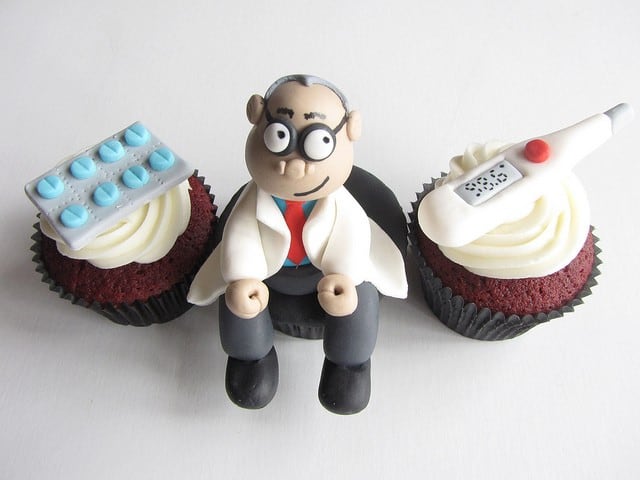As a patient, it’s easy to feel like a victim. Your body is an intensely complex organism, and if you’re not a doctor, it can be difficult to understand your illnesses, navigate the healthcare system, and be assertive enough to decide the best course of action for your body.
But as a smart, capable person, you can take control of your health. Just because you’re not a doctor doesn’t mean you can’t seek out more information, review your test results, and evaluate your options. You have the right to choose what’s best for you. It’s your body, after all, and it’s up to you how you take care of it.
Take Control of Your Health and Be Amazed by the Results
I spent years feeling sick due to a misdiagnosis. I was supposedly “cured” by several major surgeries, but I continued to experience a lot of pain. My doctors told me that I was going to be in pain for the rest of my life and there was nothing we could do about it, other than dull the pain with constant medication. But I didn’t believe them. I knew there had to be an alternative.
One day, I decided to take control of my health. I replaced my entire healthcare team. With new doctors, I got off all the medications I was taking, which led to being correctly diagnosed. I was prescribed a medication that treated the disease I actually had, and my life changed overnight.
Related: Ditch the Drugs – Why You Should Try Alternative Medicine
Taking control doesn’t necessarily mean that your doctors are wrong or you will uncover something they couldn’t, but you can make healthcare decisions based on what’s best for you. The key is choosing to take the lead.
Tips for Taking Charge of Your Healthcare
Even when we decide things have to change, it’s sometimes difficult to know where to start. Here are some tips for arming yourself with the information you need to take control of your health:
1. Make Sure You Have Access to Your Data
Doctors often assume their patients want them to translate test results. This may be the case for many people, but when you start running the show, you need access to all possible information about your body: test results, lab work, and even doctors’ notes. Again, it’s your body — not the hospital’s and not the doctor’s — so you are entitled to this information.
Related: Top 5 Questions to Ask Your Doctor
2. Do Your Research
In the past, people had to rely largely on their doctors for medical information. Now, we have unprecedented access to comprehensive information on everything from specific diseases to point-of-care diagnostics. Make sure to do your research when scheduling your healthcare appointment.
There’s a wealth of reputable websites with articles written for average people, not doctors, so they’re accessible and easy to understand. Learn everything you can that relates to your situation so you can make informed decisions.
3. Track Yourself
Once you’ve educated yourself and seen your data, you can begin to track your behavior, symptoms, and vitals. When you have accurate, continuous data on things like diet, blood sugar, hydration, energy levels, and heart rate, you can take steps to correct small deviations before symptoms start.
Study how different foods, activities, or sleep patterns affect your health on a day-to-day basis.
Tracking and logging health data is much easier with today’s technology. Fitness sensors like Basis or Misfit can track your heart rate, sleep patterns, and stress levels. These devices have made sophisticated technology affordable and accessible, and some will track your body’s changes over time, as well as your current status.
Related: Healthy Living Tips – 9 Ways to Stay Healthy For Life
4. Take Advantage of Disease-Specific Social Networking Sites
Other people who share your diagnosis can be your best source of information because they have such a vested interest. Websites like Crohnology and DiabetesFriends.net let you connect with others and gather ideas and support from people in similar situations. Other patients can offer nontraditional methods for feeling better, which is especially helpful if you have a rare disease that’s harder to research.
Even if you don’t currently suffer from a chronic disease or major illness, the more you take control of your health now, the more comfortable you’ll feel asserting yourself when you have big decisions to make about your care. So promote yourself to CEO of your body, and never feel victimized again.
***************
 Robin Farmanfarmaian, a major driving force behind building the successful medical conference at Singularity University, has spent most of her career focused on making a positive impact on medicine and healthcare. Robin is the Founding Executive Producer of Singularity University’s medical conference and the Vice President of Strategic Relations for Singularity University.
Robin Farmanfarmaian, a major driving force behind building the successful medical conference at Singularity University, has spent most of her career focused on making a positive impact on medicine and healthcare. Robin is the Founding Executive Producer of Singularity University’s medical conference and the Vice President of Strategic Relations for Singularity University.
Featured photo by clevercupcakes

